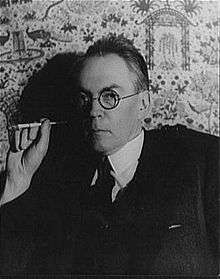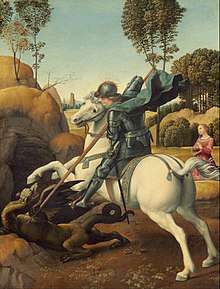
The wickedness and the foolishness of no man can avail against the fond optimism of mankind. ~ James Branch Cabell
Optimism, (positive thinking) is the opposite of pessimism, exemplifies a lifeview where one looks upon the world as a positive place. Optimists generally believe that people and events are inherently good. They have a so-called "positive" outlook on life, believing that things will work out in the end.
Quotes

Don't ever become a pessimist … a pessimist is correct oftener than an optimist, but an optimist has more fun, and neither can stop the march of events. ~ Robert A. Heinlein
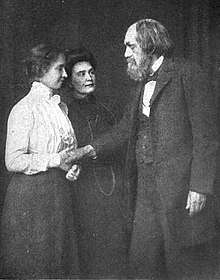

Optimism is the opium of the people. ~ Milan Kundera
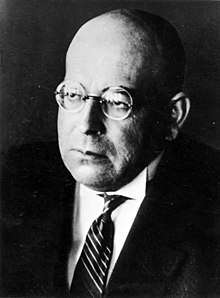
Optimism is cowardice. ~ Oswald Spengler
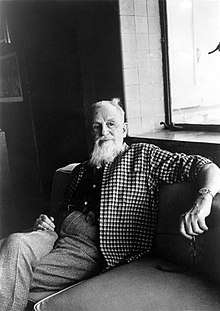
That of course is the advantage of being a pessimist; a pessimist gets nothing but pleasant surprises, an optimist nothing but unpleasant. ~ Rex Stout
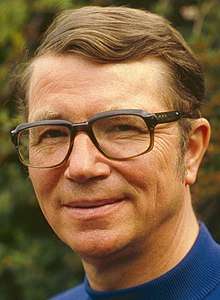
In order to realise his possibilities, man must believe in an open future; he must have a vision of something worth doing. And this will not be possible until all the determinism and pessimism that we have inherited from the 19th century — and which has infected every department of our culture, from poetry to atomic physics — has been dismissed as fallacious and illogical. ~ Colin Wilson
- Sorted alphabetically by author or source
- Optimism is an occupational hazard of programming: feedback is the treatment.
- I came out of my mom’s stomach thinking I was going to own America.
- Caprice Bourret (b. 1971), on the chat show Live from Studio Five, Channel 5 (UK) television (18 November 2009)
- The optimist proclaims that we live in the best of all possible worlds; and the pessimist fears this is true. So I elect for neither label.
- James Branch Cabell, The Silver Stallion : A Comedy of Redemption (1926), Book Four : Coth at Porutsa, Ch. XXVI : The Realist in Defeat
- I consider the saga of no lord of the Silver Stallion to be worth squabbling over. Your sagas in the end must all be perverted and engulfed by the great legend about Manuel. No matter how you strive against that legend, it will conquer: no matter what you may do or suffer, my doomed Guivric, your saga will be recast until it conforms in everything to the legend begotten by the terrified imaginings of a lost child. For men dare not face the universe with no better backing than their own resources; all men that live, and that go perforce about this world like blundering lost children whose rescuer is not yet in sight, have a vital need to believe in this sustaining legend about the Redeemer: and the wickedness and the foolishness of no man can avail against the fond optimism of mankind.
- James Branch Cabell, The Silver Stallion (1926), Horvendille, in Book Six : In the Sylan's House, Ch. XXXIX : One Warden Left Uncircumvented
- The essence of my optimism is constructive pessimism.
- Fausto Cercignani in: Brian Morris, Quotes we cherish. Quotations from Fausto Cercignani, 2013, p. 5
- No one doubts that an ordinary man can get on with this world: but we demand not strength enough to get on with it, but strength enough to get it on. Can he hate it enough to change it, and yet love it enough to think it worth changing? Can he look up at its colossal good without once feeling acquiescence? Can he look up at its colossal evil without once feeling despair? Can he, in short, be at once not only a pessimist and an optimist, but a fanatical pessimist and a fanatical optimist? Is he enough of a pagan to die for the world, and enough of a Christian to die to it? In this combination, I maintain, it is the rational optimist who fails, the irrational optimist who succeeds. He is ready to smash the whole universe for the sake of itself.
- For myself I am an optimist — it does not seem to be much use being anything else.
- Winston Churchill, speech at the Lord Mayor's banquet, London (9 November 1954)
- I am an irrepressible optimist, but I always base my optimism on solid facts.
- Look up and not down;
Look forward and not back;
Look out and not in;
Lend a Hand.- Edward Everett Hale, motto of the Lend a Hand Society. The first Lend a Hand Club was founded in 1871, followed by the incorporation of a league of clubs, the Lend a Hand Society, in 1891. Edward E. Hale, who founded the first club in Boston, Massachusetts, later became chaplain to the United States Senate.
- Don't ever become a pessimist … a pessimist is correct oftener than an optimist, but an optimist has more fun, and neither can stop the march of events.
- Robert A. Heinlein, in Time Enough for Love (1973)
- You may be whatever you resolve to be. Determine to be something in the world, and you will be something. "I cannot" never accomplished anything: "I will try" has wrought wonders.
- Joel Hawes, as quoted in Thoughts On The Business of Life at thoughts.forbes.com
- Always look on the bright side of life.
- Eric Idle; song written for the film, Monty Python’s Life of Brian (1979)
- Keep your face to the sunshine and you cannot see the shadow.
- Attributed to Helen Keller, inscription in autograph album of Lafayette E. Cornwell, Yonkers, New York, reported in Walter Fogg, One Thousand Sayings of History (1929), p. 17. While this sentence has been attributed to Keller several times, Keller experts at the American Federation for the Blind in New York City have never been able to find it.
- Optimism is the faith that leads to achievement; nothing can be done without hope.
- Helen Keller, Optimism (1903)
- Optimism is the opium of the people.
- Milan Kundera, The Joke (1967)
- Two men look out through the same bars:
One sees the mud, and one the stars.- Frederick Langbridge (1849–1923), A Cluster of Quiet Thoughts
- Despite the cautions just raised, there is abundant reason to believe that optimism – big, little, and in between – is useful to a person because positive expectations can be self-fulfilling.
- Christopher Peterson, American Psychologist, ISSN 0003-066X, January 2000, p. 51
- "Optimist" is a word which here refers to a person...who thinks pleasant thoughts about nearly everything. For instance, if an optimist had his left arm chewed off by an alligator, he might say, in a pleasant and hopeful voice, "Well, this isn't too bad. I don't have my arm anymore, but at least nobody will ever ask me if I am right-handed or left-handed", but most of us would say something more along the lines of "Aaaaah! My arm! My arm!"
- Lemony Snicket, The Miserable Mill (2000)
- Optimism is cowardice.
- Oswald Spengler, Man and Technics (1931)
- Optimism is good for overcoming obstacles that are part of daily life, but over-optimism can blind us to adversities that need addressing.
- Michael Shermer (22 February 2012). Defying the Doomsayers. Wall Street Journal.
- This is a pleasant surprise, Archie. I would not have believed it. That of course is the advantage of being a pessimist; a pessimist gets nothing but pleasant surprises, an optimist nothing but unpleasant.
- Rex Stout, in lines for Nero Wolfe, in Fer-de-Lance (1934)
- Seen from a higher perspective, conditions are always positive. To be more precise: they are neither positive nor negative. They are as they are. And when you live in complete acceptance of what is - which is the only sane way to live - there is no "good" or "bad" in your life anymore. There is only a higher good - which includes the "bad." Seen from the perspective of the mind, however, there is good-bad, like-dislike, love-hate.
- Eckhart Tolle in The Power of Now: A Guide to Spiritual Enlightenment (1997) p. 111
- Once you have identified with some form of negativity, you do not want to let go, and on a deeply unconscious level, you do not want positive change. It would threaten your identity as a depressed, angry, or hard-done-by person. You will then ignore, deny or sabotage the positive in your life. This is a common phenomenon. It is also insane.
- Eckhart Tolle in The Power of Now: A Guide to Spiritual Enlightenment (1997) p. 119
- As more humans awaken, the word work is going to disappear from our vocabulary, and perhaps a new word will be created to replace it. It is the quality of your consciousness at this moment that is the main determinant of what kind of future you will experience, so to surrender is the most important thing you can do to bring about positive change. Any action you take is secondary.
- Eckhart Tolle in The Power of Now: A Guide to Spiritual Enlightenment (1997)
- The basis of optimism is sheer terror.
- Oscar Wilde, The Picture of Dorian Gray (1891)
- My deepest impulses are optimistic; an attitude that seems to me as spiritually necessary and proper as it is intellectually suspect.
- Ellen Willis, "Tom Wolfe's Failed Optimism" (1977), Beginning To See the Light: Pieces of a Decade (1981)
- Maslow's psychology, firmly based upon Freud and Watson, simply points out that the optimistic side of the picture has been overlooked; the deterministic laws of our 'lower nature' hold sway in their won field; but there are other laws. Man's freedom is a reality — a reality that makes a difference to his physical, as well as his mental health. When Frankl's prisoners ceased to believe in the possibility of freedom, they grew sick and died. On the other hand, when they saw that Dachau had no chimney, standing out all night in the rain seemed no great hardship; they laughed and joked. The conclusion needs to be stated in letters ten feet high. In order to realise his possibilities, man must believe in an open future; he must have a vision of something worth doing. And this will not be possible until all the determinism and pessimism that we have inherited from the 19th century — and which has infected every department of our culture, from poetry to atomic physics — has been dismissed as fallacious and illogical. Twentieth century science, philosophy, politics, literature — even music — has been constructed upon a weltanschauung that leaves half of human nature out of account.
- Colin Wilson in New Pathways In Psychology: Maslow and the Post-Freudian Revolution, p 219-220 (1972)
- If you think you are beaten, you are;
If you think you dare not, you don't.
If you'd like to win, but think you can't,
It's almost a cinch you won't.
If you think you'll lose, you're lost,
For out in the world we find
begins with a fellow's will;
It's all in the state of mind.
If you think you're outclassed, you are;
You've got to think high to rise.
You've got to be sure of yourself before
You can ever win a prize.
Life's battles don't always go
To the stronger or faster man;
But soon or late the man who wins
Is the one who thinks he can.- Walter D. Wintle, in "Thinking" (1905), also known as "The Man Who Thinks He Can", as presented in Poems That Live Forever (1965) p. 310
See also
External links
This article is issued from
Wikiquote.
The text is licensed under Creative
Commons - Attribution - Sharealike.
Additional terms may apply for the media files.
